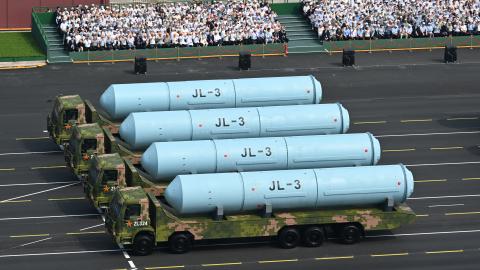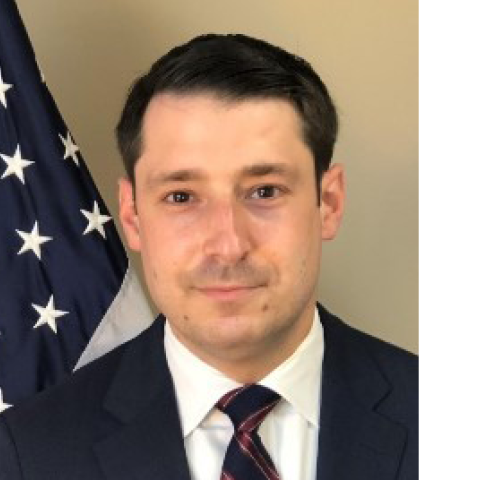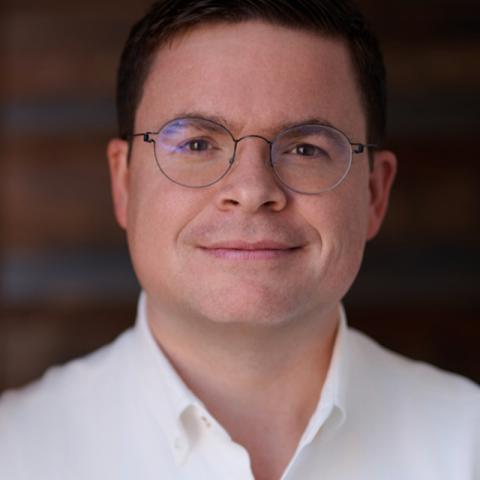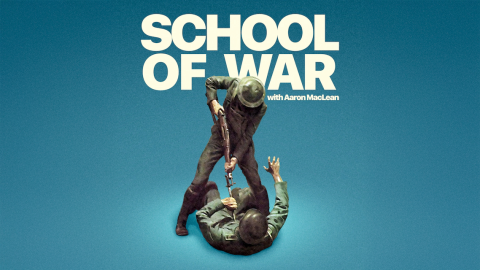
After Midnight Hammer: The State of Iran’s Nuclear Program and What’s Next in the Middle East
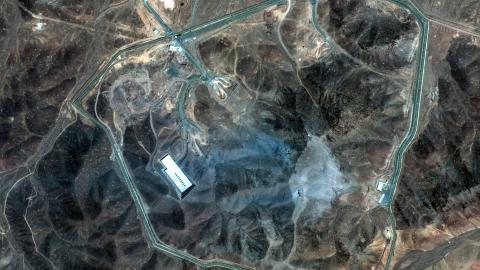
Event will also air live on this page.
Inquiries: tmagnuson@hudson.org.

Founder and President, Institute for Science and International Security

Senior Fellow and Director, Center for Peace and Security in the Middle East
Michael Doran is a senior fellow and director of the Center for Peace and Security in the Middle East at Hudson Institute.
Institute for Science and International Security Founder and President David Albright, one of the leading experts on the Iranian nuclear program, will join Hudson’s Michael Doran for a fireside chat. They will discuss the state of Iran’s nuclear ambitions following Operations Rising Lion and Midnight Hammer and how the United States, Israel, and their regional partners can capitalize on Iran’s weakened state to promote long-term peace and stability.
Event Transcript
This transcription is automatically generated and edited lightly for accuracy. Please excuse any errors.
Mike Doran:
Okay. Hi, I’m Mike Doran. I am the director of the Middle East Center at the Hudson Institute, and I am honored today to be joined by David Albright. He is the founder and the head of the Institute for Science and International Security. And David, you are widely considered to be the country, maybe the world’s foremost expert on secret nuclear weapons programs. I mean, you are certainly the guy that I look to tell me what’s really going on when everyone is hurling accusations about the Iranian nuclear program. So welcome and thanks for coming to help us understand what’s going on. Let me start by just asking you to give us a 30,000-foot overview of the destruction of the Iranian nuclear program. How would you assess it from what you know now?
David Albright:
Well, the bombing was very effective and I would say the major nuclear programs that Iran has involving centrifuges, some of what we’d call the plutonium pathway to the bomb, are destroyed. And the weaponization part, the part where you make the nuclear weapon itself has been heavily damaged. And that in a sense is we see it in the public as these, I don’t know what it is now, 15 or more scientists who were killed by Israel all linked to the nuclear weaponization process, and so you have a program that’s been heavily damaged.
Now that doesn’t mean everything was destroyed and there are questions of what remains involved with the centrifuge program and the weaponization. I think the plutonium pathway destruction was pretty total. It involved a reactor and a heavy water production plant. I would say that wasn’t the most important thing to destroy. The centrifuge program and the weaponization is critical. Now what wasn’t destroyed or targeted was their nuclear power program. They have a very large nuclear power reactor called Bushehr 1. That was exempted. Israel made a deal with the Russians who work there. It is a Russian-supplied reactor and there’s Russians building Bushehr 2 and 3. So Iran’s, what I would call, necessary nuclear program wasn’t touched.
Mike Doran:
Necessary meaning if it was truly a civil nuclear program, this would be acceptable in that.
David Albright:
That’s right. And it makes electricity. The enriched uranium comes from Russia. Iran cannot possibly make enough enriched uranium for Bushehr 1, let alone Bushehr 2 and 3, and so they just buy it internationally at competitive rates. And that was exempted and everyone agrees that that program can be lived with.
Mike Doran:
You kind of said this, and let me just make sure I understood correctly. I have always been under the impression that the plutonium pathway to an Iranian nuclear weapon was secondary in the Iranian program, that they were really concentrating on the Iranian pathway. Do I have that right?
David Albright:
In the weapons side, yes. In fact, it’s always been this mystery of why they were building. It used to be called the Iraq Reactor, a 40-megawatt thermal reactor that was designed that in a way that it could make pretty good weapon-grade plutonium, and it was cooled and moderated by heavy water and they built a heavy water production plant. And it was a major target of this joint comprehensive plan of action to turn it into a reactor that’s proliferation proof. And I think Israel bombed it because Iran had been veering off that pathway of making it proliferation proof and was taking steps, and so they then decided to basically try to destroy the core and then cripple the heavy water production plant.
Mike Doran:
They were veering off that pathway. This is the issue of the calandria?
David Albright:
Yes.
Mike Doran:
So the calandria is a key component of the reactor, which allows it ... I’m just explaining to make sure that I understand, but also that everybody else is following you ... to make weapon-grade plutonium. The JCPOA required the substitute of the calandria with a different design that wouldn’t allow the creation of weapon-grade plutonium. But the head of the Iranian Atomic Energy Association went on TV and said, “Well, we tricked the Westerners because we have a spare calandria that can do the job in storage and we’re going to stick it back.” Is that what you mean when you say ...
David Albright:
Yeah, that’s right. And there’s no proof that they were planning to use that in a bomb program. There are these documents that were seized by Israel in 2018 that covered the crash nuclear weapons program of the early 2000s and in it, there’s almost nothing on plutonium. It’s really focused on a weapon-grade uranium bomb gained through an enrichment program. And so it’s always been a bit of a mystery why were they doing this, and in some of their early public statements they would say, “Well, we wanted to have the uranium pathway and the plutonium pathway.” Or let me put it this way, they “developed the plutonium pathway and the uranium pathway,” and these are their words, “and we thought one wouldn’t work.” And this is in 2003. Head of the Atomic Energy Organization says, “We were surprised both worked.” But in the weapons program, the plutonium one was not emphasized in terms of designing a nuclear weapon.
Mike Doran:
There’s a lot of redundancy in their program though, no?
David Albright:
Yeah, and I think they had lots of funds and the Atomic Energy Organization saw the plutonium pathway as having benefits and civil applications. And so I think they really pursued that pathway much more than the weaponeers.
Mike Doran:
Okay, so on the uranium and weaponization side there are the three major sites, Natanz, Fordow, and Isfahan. You put out a report that I would recommend to everyone of your initial assessment and it’s that they did a pretty good job, to the extent that you can tell because there are underground facilities, particularly in Natanz and Fordow, and you can’t know for sure what happened under the ground. But from what you can tell, you think the destruction was pretty severe.
David Albright:
Yeah. And if you start with the above ground, I mean, Isfahan has many, many buildings and the Israelis and then the United States were targeting Iran’s ability to produce what we call the feed gas of a centrifuge program. You take natural uranium, it comes out of a mine, turned into something called yellow cake, and then you process that into uranium hexafluoride. The US actually destroyed this pretty substantial building pretty thoroughly that would make that. And so in that sense, it denied Iran the ability to enrich uranium in the future beyond what it already has in supply.
The Israelis destroyed a facility that had been controversial for several years that would take enriched uranium hexafluoride. Well, it was a facility to do all this, to go from uranium hexafluoride through enriched uranium metal. Iran had only put in the line, in the middle in a sense, that goes from uranium tetrafluoride to enriched uranium metal. And they had tested it with 20% and then it just laid idle for the last several years. And so the view was that was if they were going to break out, that would be used in a bomb program to make weapon-grade uranium metal, and so that was taken out.
Mike Doran:
I’ll run everyone through. This is a statement in the form of a question. I’ll just run through the stages of going from mining to bomb. You’ll correct me if I get anything wrong, but you did some of them for us already. You take the ore out of the ground, then you take the ore and you turn it into yellow cake through some kind of chemical process. The yellow cake you then turn into a gas and you feed the gas into the centrifuges and the centrifuges then enrich it. They isolate the isotope that can be used in a bomb. Then you take your enriched uranium and then you have to turn it into the metal.
David Albright:
That’s right, for a bomb
Mike Doran:
For a bomb. And so at Isfahan, we had two of those processes. We had turning it from yellow cake into gas, but then on the other end taking the enriched uranium and turning it into a metal which you can mold and put into a warhead.
David Albright:
That’s right.
Mike Doran:
Is that right?
David Albright:
That’s right.
Mike Doran:
And what you’re telling me is that they had done the initial, they didn’t want to show their hand and say they were doing experiments to turn it into a metal with enriched uranium that was not enriched to weapon-grade so that when it came time to do it, they would know how to do it properly.
David Albright:
And that’s the interpretation.
Mike Doran:
Yeah.
David Albright:
And the fact that it didn’t operate even. It added confirmation to that assessment. If you enrich uranium, if it’s civil, you can then take it, turn it into an oxide, and make it into fuel. And they have facilities at Isfahan to do that. Mostly not finished or used, but except for fuel for a research reactor. And that building was also struck because in the past, it’s where we could chart 85% of the 20% and 60% stocks were kept. So they were brought from the enrichment plants to this facility at Isfahan, which was a fuel fabrication plant and just stored. They weren’t used very much to make fuel, if at all, because the stocks were so large and that facility was bombed twice.
Mike Doran:
This is a little technical footnote, but I didn’t understand. The Americans came in and they dropped the massive ordnance penetrators on Fordow, but they also sent Tomahawk missiles against ... I think it was Isfahan if I’m not mistaken. Why wouldn’t the Israelis have been able to hit? Why did they need the Americans to do that with the Tomahawk missiles?
David Albright:
My view was not to involve the Americans, but the Americans could do it much better. I mean, let me just jump to Fordow. Fordow is deeply buried. It came out of the weapons program of the early 2000s. It was the facility that the bomb weaponeers wanted to make weapon-grade uranium. It was going to get help from enriched uranium from Natanz. And so they would start with 5% at Fordow or so and then run it up to weapon-grade uranium using these old IR-1 centrifuges when the program halted in 2003, but the program to build the Al Ghadir project continued and then they got caught and then they classify.
Mike Doran:
Al Ghadir is Fordo, right?
David Albright:
Yeah, that’s right. There’s all kinds of schematics in the archive and we were able to kind of take the schematics of the tunnel complex.
Mike Doran:
I highly recommend that to everyone ... That’s one of the nicest things about your report is that you map, you project the picture of the topography. You overlay the schematics from the Ahmad program and so you get a sense of what this thing probably looks like.
David Albright:
You need three points. So we had two tunnel entrances and we needed a third point, and that was the ventilation shaft of the site and it’s marked on the schematics. And then we could look at old satellite imagery from 2009 and find the ventilation shaft construction.
Mike Doran:
Yeah.
David Albright:
And we felt that Israel could have taken out that shaft. What we didn’t understand at the time was that this whole mop was designed with full knowledge of that ventilation shaft and another one. I can remember having arguments, in fact, where they’d say, “Well, but a mop can’t go through more than, whatever, 30, 40 meters of mountains.” And then we were saying ...
Mike Doran:
We know this now from ...
David Albright:
“Yeah, but there’s a ventilation shaft for you to go through empty space.”
Mike Doran:
From the briefing that General Cain gave us, we know now that this is ... I didn’t know that either.
David Albright:
It’s very American. I mean, we were thinking that Israel could do it with their weaponry and they come in with five, six mops, one to blow off the cover, which I must confess. I mean, looking back at all our chatter on, “Here’s a ventilation shaft. Here’s immense vulnerability of the plant,” it actually led Iran to put that cap on because I think their view was that it was invincible.
Mike Doran:
Right.
David Albright:
And we’re sort of poking little holes at that. But it’s very American to build a weapon system as big as that to go through ventilation shafts.
Mike Doran:
To do that particular thing, yeah.
David Albright:
And so I would expect the place is really destroyed. And when we look at satellite image over the last week since it’s destroyed, they’re doing things like putting caps back on where the mops went in. There’s six holes. They were excavating and then putting basically caps. We thought when they moved in cranes to this area that maybe they were going to try to drop something down.
Mike Doran:
Right.
David Albright:
But it doesn’t look like that. It looks like they may have taken some readings, but they just wanted to cap it. And then they’ve cleared out a tunnel entrance. We don’t know if anything’s gone in yet, but it just seems like what they’re trying to do is figure out what just happened to them. And they’re having a hard time figuring out the damage done and how to access the site and determine that because one of the unfortunate properties of uranium hexafluoride is that when it’s exposed ...
PART 1 OF 4 ENDS [00:15:04]
David Albright:
Properties of uranium hexafluoride is that when it’s exposed to water, it produces hydrochloric acid. And the fluorine by itself is very reactive. And so when it touches water, so it’s a very dangerous environment to walk in if the explosions dispersed, the enriched uranium.
Mike Doran:
So encapsulation is probably the smartest thing to do, then.
David Albright:
Yeah.
Mike Doran:
But why do you think they hit the Isfahan with the Tomahawk missiles? Because wouldn’t the Israeli capabilities be equal to that?
David Albright:
Well, I think it, you know, we were surprised that we would see buildings sort of all around the uranium conversion facility hit and not that one. But we were very surprised that Fordo wasn’t hit and day after day would go by and it wasn’t hit, and they could make it inoperative, at least, and they didn’t do it. So I can’t help but think that they felt that the United States could do a much better job and they wanted to kind of lure the United States in to do the job.
Mike Doran:
To do it, yeah.
David Albright:
And they knew about the MOP and they knew that their penetraters-
Mike Doran:
So it was all planned with the-
David Albright:
But I’m not sure the U.S had decided, I don’t know if it really was planned or if it was just Israel putting pressure on them to step in and do a much better job. When you look at the damage from the cruise missiles, it is pretty remarkable compared to what Israel was doing in terms of real being able to just destroy the conversion facility and just do it in one whack, in a sense. And Israel was coming back sometimes twice.
Mike Doran:
I see.
David Albright:
To take out some of the buildings, not even as large as the conversion facility. And neither side could hit the tunnel complex. There was a tunnel complex that Isfahan was built back in about 2005, and it was built to use in case of a military threat. That’s what they declared to the International Atomic Energy back then. And at that time it was essentially empty. But it turns out that the United States and Israel cannot destroy that site. And so that becomes a place where all they could do is block the tunnel entrances. And they did that. And when we looked a couple days ago, Iran had not tried to unblock the tunnel entrances.
Mike Doran:
Why couldn’t the MOP destroy that facility?
David Albright:
Because it can’t really penetrate that much of a mountain. I mean, it’s very difficult for it to penetrate as deep as the halls would be. You can get the tunnel entrances and they would’ve had the design. I mean, they would’ve known from all these years exactly what the design was.
Mike Doran:
Do you have any idea what’s in those tunnels now?
David Albright:
No. No. And the only thing everyone’s working from is a statement made to the, I think to director general Grossi of the IAEA that from a senior official that said we plan to move our stocks and we plan to protect them. But Iran was surprised. I mean, Israel did catch them by surprise, and it’s an open question of how much they moved and how much was destroyed. And it could have been destroyed in Fordow. There was material in the underground site at Natanz. There was a little bit at the pilot plant above ground at Natanz. There was some could have been more, quite a bit at some of the buildings hit at Isfahan.
And it’s in three categories essentially. I mean, let’s say 2 to 5% enriched, 20% enriched to 60% enriched. And the 20% enriched stock was weighed down because doing something that actually was alarming people was taking the 20% starting in December and then enriching it up to 60% as fast as they could. And so it looked like they were preparing to break out and trying to further reduce the time they need to make weapon-grade uranium.
Mike Doran:
Let me ask you about this facility that everyone calls Pickaxe Mountain. As far as I can tell from the reports, neither the Israelis nor the Americans hit it. So first of all, can you tell us what it is? And if they didn’t hit it, why do you think they didn’t hit it?
David Albright:
Well, in about 2020, Israel blew up a major nuclear facility at Natanz. It was almost finished and its purpose was to assemble advanced gas centrifuges and be able to assemble several up to 8,000 a year. And they couldn’t make that many, but still they could make a couple thousand a year. And so it was a major investment and they, with one blast destroyed it. And Iran’s reaction was, “Okay, now we’re going to put it under a mountain.”
And they have been already had a tunnel complex at this Pickaxe Mountain or a peak next to it and under that peak, and they said, “We’re going to now build this. We’ll be done in a year or two.” They’re just now finishing, we think. So they’re way behind. And you could see problems. I mean, there’d be water running out of tunnel entrances, you know, they just, it looked like they were really slowed down and that it was so large underneath, at least in our estimate, but also in the Israeli estimate, that there was a suspicion that it would have assembly facility for centrifuges, but also would be having a small enrichment plant. And you know, you assemble in one part of the underground facility, you install in a sense in the next hall.
And so that was a common assessment. And I think the only thing I’ve heard beyond what the common assessment is that it wasn’t hit was Israel did something to it to damage it, but we don’t know what it is. This came out of people reporting out of Israel. So we really don’t know. And we don’t know really what’s in it. I mean, we never saw equipment being taken in. And it doesn’t mean it didn’t happen, but it looked like at best they could have started something before it was finally finished. If you look at it, it looks possibly like they’re finishing now, but mostly in the sense they’re not doing any more tunneling.
You don’t see the kind of things that we call lining the tunnels that Iranians do in a particular way. And we don’t see the kind of activity you would associate with an operational plant, but it could be a store place.
Mike Doran:
So your best assessment is that it really isn’t online yet, is that the ...
David Albright:
Yeah, but we don’t know what could be stored there. And we don’t really know. I mean, in the Washington debate, it’s very easy to predicate everything on an if. Since they said they were going to protect the stocks, they must have done that.
Mike Doran:
Yeah.
David Albright:
And you have people like President Trump saying, “No, all the Iranians thought Fordow was invincible. They put everything there, and now it’s obliterated or destroyed or inaccessible.” And I think we just don’t know and ultimately, and I think where I come out is we’ve got to hedge our bets and that we need to have assurance that these stocks are not going to come back and really haunt us a year or two from now.
Mike Doran:
Right.
David Albright:
And I think I share the assessment that they’re not rushing to build nuclear weapons. I don’t think they’ve even made the decision to make nuclear weapons as a result of this. I mean, sure, there’s going to be statements by people that, you know, let’s go for it and from the Iranian side, but actually going to build nuclear weapons, given what Israel, how it commands the skies and is so penetrating that those institutions, they may see it as far too risky and they need to kind of defend themselves, protect assets, hide, and keep a low profile.
Mike Doran:
I’m going to come back to you on that issue. I want to stay for a second on this Pickaxe Mountain because I want to make sure I understand it. When the last report of the IAEA, they censored the Iranians and said they were not in with their NPT obligations. And in reaction, the Iranians said, they attacked the IAEA and they said, “We’re going to build a new enrichment facility.”
David Albright:
Built a new one.
Mike Doran:
Yeah,.
David Albright:
And ready to install centrifuges, so now they’re alarming-
Mike Doran:
Underground, yeah.
David Albright:
And wonder why they get bombed. I mean, this is their modus operandi to cause panic in the minds of Israelis that you don’t want to wait to strike them. And yeah, but when-
Mike Doran:
But what was the common assumption that the facility that they were referring to, that the new secure facility they were going to build was Pickaxe Mountain or is it some other one?
David Albright:
No, it was Pickaxe Mountain, but then Grossi came out and said that the Iranians said it’s at Isfahan. But we don’t know what that means. I mean, it’s not at the main site. We don’t know is it in the mountain complex? It doesn’t ... Maybe, but it’s now blocked. Can’t get into it. Or is it in another building? Israel would probably know where it is, and if it is above ground, it very well could have been bombed. But it fed this idea, and it’s a legitimate idea that they said they were getting ready to install centrifuges there. Well, that means they’ve made those centrifuges, or you have to assume that. And they’ve been deploying thousands of centrifuges a year at the Natanz underground site. It’s up to about, I don’t know what it is, 17,000 now. And so they very well could have made a couple thousand that were not deployed at Fordow or Natanz and then that’s a question, where are they?
Mike Doran:
Okay. And this is what you call in your report, the residual capabilities or residuals. And there are two components to that. There’s the possibility of centrifuges that have been manufactured and stored and not put online yet, and there’s a possibility that some percentage of the 60% enriched uranium is still available to the ...
David Albright:
That’s right.
Mike Doran:
They moved it out of Fordow or wherever, and they are storing it somewhere.
David Albright:
Yeah.
Mike Doran:
So in your mind, I’m asking the question here, in your mind, the most dangerous scenario for us moving forward with respect to the Iranians is that they’ll take that residual uranium and those centrifuges and then enrich it to 90% for a bomb.
David Albright:
That’s right. Make a very small enrichment plant.
Mike Doran:
Yeah.
David Albright:
I don’t think they would do it and it’s not imminent by any means, but wait a year, two years, and the pressure goes down, their air defenses are back up, they get help from Russia on more sophisticated air defenses, and then they’ve kept the IAEA international inspectors out, and then they make a move. And so, yeah, that to me is a central unresolved problem.
Mike Doran:
As somebody who’s concerned with non-proliferation, that’s your number one scenario of concern?
David Albright:
Yeah, I think so.
Mike Doran:
Are there other scenarios that are worrying you as well?
David Albright:
But we have to add in, I mean, their ability to make the bomb was severely hurt. And so they have to, and that’s why I also don’t think that’s so imminent of a threat is that they have to kind of reconstitute their capabilities and they’ve lost some senior personnel, top scientists. They’ve lost facilities. They have to figure out how they could make these facilities. It’s tangible objects that are needed to make a nuclear weapon. How can they put them someplace and assemble them without being detected? The Mossad has put out kind of a flyer electronically and probably in paper all through Iran, “Come to us and here’s the email address and we’ll give you a nice reward.”
Mike Doran:
And they’ve shown that they have the ability to kill people, too.
David Albright:
Yeah, no they said-
Mike Doran:
So if you want to stay off the target list, it’s probably better to ...
David Albright:
No, they issued a statement that if you work on this program, and I think they mean a secret centrifuge program, a weaponization program, they’ll kill you. I know they were calling, texting or calling, I don’t know what, I guess you don’t call anyone anymore, but text, email scientists all over Iran threatening their lives. And so I think Iran would have a real problem reconstituting both an enrichment program and a nuclear weaponization program. And so I think they’ll buy their time.
Mike Doran:
How hard will it be-
David Albright:
They’ll try to buy their time. I mean, the challenge is what the U.S does, but they’ll try to buy their time.
Mike Doran:
Aside from the fact that nuclear scientists in Iran are scared just in terms of know-how capability and so on, how seriously have the Israelis set back the weaponization program by killing these scientists? In terms of the human capital, can they be replaced easily?
David Albright:
I think, yeah. I mean, what they’re doing, and it’s a very hard statement, but I mean on the weaponization is they try to destroy the hardware and there are things they’ve hit we don’t know about yet.
Mike Doran:
Yeah.
David Albright:
I mean, they hit over 200 targets and we’re talking about five or six. And then you try to destroy the software and they’ve been using cyber methods to go after some of that and other methods. And then you kill the software developers. And you can see in some of the people killed they’re in the physics department, you can see from their publications, they were developing very sophisticated codes that-
David Albright:
They were developing very sophisticated codes that could have application in the weapons program. So I think Israel’s just trying to systematically destroy their capabilities. And yes, people can be replaced, but it takes time. Also, there were several scientists killed back in, I forget, 2010, 2012. They had students because Iran has a very robust military universities that train people in physics and engineering for placement in the military industries, including the nuclear. And they killed some of their students trained by these people that had been killed, and then they killed some of the students.
Mike Doran:
You have to have a lot of fortitude if you want to become a Iranian-
David Albright:
Nuclear weapons expert. No, that’s right. But how long did they set them back? I mean, people are a little shocked on this assessment, and maybe it’s not our final one, but we were thinking that they needed about six months to finish the process and build a bomb. But that timeframe was shrinking over the last several months. We hadn’t attached a new date. Some have been talking about three months, four months to do all the things they needed to make the bomb itself. I think we’re thinking it’s more like a year now. I think the Israelis are trying to say that if you look at everything, the damage to the enrichment program, the damage to the weaponization, the general damage to just intellectual capabilities, that it’s several years before they could really get everything together to make a bomb.
And it’s hard to disagree. It’s hard to agree too, but they have a point that I’m looking at each little part of it and making estimates. But you have to look at it holistic way. And the Iranians really have to worry about detection. They know that the bombings can start and the killings will probably continue. I mean, I don’t see why Mossad would stop its activities. And it is just a ceasefire, there’s no peace treaty is Iran is still resisting. Realizing is from my view, that it’s been defeated on this issue.
Mike Doran:
Okay. I’ll get to the ceasefire in a second. But let me ask you to do something that’s unusual for you. Imagine that you are the advisor to Ali Khamenei, and you want to tell him how to save as much as possible. You want to have the nucleus of the program saved and you want to move toward a nuclear weapon as quickly as possible. What would you tell him to do?
David Albright:
I don’t know, what’s the phrase? Go to the ground. Just really hide out and wait it out and see where things are six months from now, evaluate, wait a year, and just-
Mike Doran:
For the moment, just buy time.
David Albright:
That’s right.
Mike Doran:
So you would advise them to just continue to stiff arm the IAEA. Don’t let them come in and look at anything and just evaluate what you’ve got.
David Albright:
Well, that’s different. I mean, I may say, okay, IAEA, come in and inspect the stops, but-
Mike Doran:
Limit what they can look at.
David Albright:
... but you can’t take them with you.
Mike Doran:
Yeah.
David Albright:
Yeah. 300 kilograms is in under Fordow mountain.
Mike Doran:
Yeah. Have fun.
David Albright:
Yeah. Have fun.
Mike Doran:
You go excavate it. We don’t know how to do it.
David Albright:
But in fact, 200 kilograms is hidden away secretly. So again, that’s a very big if, but that’s what I would be looking for.
Mike Doran:
So you can play hide the ball with the IAEA. They’re very good at that. That’s a national sport for them.
David Albright:
Yeah. While you’re declaring to have it. And that’s what they did in 2003 and ‘04 was we were so happy. We found first to identify publicly the Natanz enrichment plant. And it took a lot of work for the institute to do that. And we were so proud. And yet we fell for the Iranian deception. We didn’t even look for the Al Ghadir project. And then even when they shut down Ahmad, in a way that was a deception campaign. It was close to getting discovered. It would’ve been with the US and Iraq. It would’ve been a very uncomfortable moment. They had largely finished all the work they needed to do to make the nuclear weapon itself, but they had far from having weapon-grade uranium. So they continue the weapon-grade uranium contestant program and reduce the level of nuclear weaponization work and then start working on reducing bottlenecks. The main one was enriched uranium.
Mike Doran:
Wait, so I don’t think I ever fully understood what you just said, so I’m going to repeat it back to you.
David Albright:
It’s controversial, but it’s-
Mike Doran:
No, but it makes sense. So they were actually very close on the weaponization, and so they shut that down because it sent a false signal, but a very convincing signal to the international community that they’re not going for a bomb. And the thing that was lagging behind in their program was really the uranium enrichment. So they hid that in plain sight. They hid it.
David Albright:
It was a highly covert program.
Mike Doran:
Highly covert program, but then they also had some of it in plain sight.
David Albright:
Yeah. And when they were caught. They had developed a strategy. They’d actually practiced it once before on a, it was called the Gchine mine. They involve the Atomic energy organization. And then if they’re caught, they say-
Mike Doran:
Civil nuclear.
David Albright:
Civil nuclear.
Mike Doran:
Whenever they get caught, they say it’s civil nuclear. But even if it’s pretty obvious that it’s not. Okay. So then the idea is that at a certain point, they have all the pieces that they need to pull them together.
David Albright:
That’s right. And I think if they’re going to build an enrichment plan, they have to be very careful. I mean, there’s some things that can go wrong and you can lose a lot of centrifuges when things go wrong. So I think if they’re going to do a breakout in the future, then I think they would want to make sure that the centrifuge plant they built one would be smaller probably than even Fordow, which was designed for 3,000 centrifuges. Maybe go for one that’s 1,000. And that you would just live with whatever you could produce there from the 60 and possibly the residual 25% stocks that you can hide away or seize. If there’s nothing to stop them from seizing the IAEA stocks in the future.
Mike Doran:
If you can keep that facility secret, then it’s going to be smaller. So your ability to enrich quickly is going to be impaired, but you’re willing to accept that impairment in the interest of secrecy.
David Albright:
Yeah. And the Ahmad plan only sought in the initial phases, sought enough weapon-grade uranium for five nuclear weapons. They wanted more in the future. But if they can manage to get enough for 5, 6, 7 bombs, I mean, that’s enough. And then they can evaluate later if they can get away with building a bigger enrichment plant that would be able to go from natural to weapon-grade uranium in a reasonable amount of time. So I think they will try to, I think buy their time, hide their assets, deceive the IA, stonewall on the weaponization as they’ve been doing for 20 years. But the world’s changed. So I think-
Mike Doran:
The patience of the President of the United States is not what it has been in the past.
David Albright:
No. And I think three weeks ago, four weeks ago, the idea that they would end enrichment was just dismissed. Iran will never agree to it. It’s not credible. Let Wittkopf make a compromise. Now, I think it’s hard to go back to where you would have anything but no enrichment. I mean, maybe there would be some really little tiny, little enrichment on a very, almost a lab scale. But given all the war and Israel’s demands and President Trump is that we really are now, the realistic option is Iran has to give up its enrichment program, and they’ll try to prevent that. So now the ball is in the United States Court to make its move of how they’re going to end enrichment in Iran.
Mike Doran:
So let’s go with that then. I won’t make you the advisor to Ali Khamenei anymore. Now, you’re the advisor to Donald Trump. What should he be demanding that would satisfy the Israelis and the rest of the world, that the Iranians do not have a nuclear weapons program?
David Albright:
Well, I think the first thing is to think about this as what happened in 1991.
Mike Doran:
With Iraq?
David Albright:
History, obviously doesn’t repeat itself. I mean, what’s the expression? It rhymes. So Iraq lost the war, and a regime was imposed on them at that time by the security council in a ceasefire that said that Iraq had to give up all its WMD. And that worked. It took several years, but it nonetheless worked. And I think that’s how we should think about Iran today is this was a war. They lost the war and that a regime would be imposed on them to give up enrichment and a nuclear weapons program.
Mike Doran:
Hard to see them agreeing to that.
David Albright:
Well, let me finish. And that the inspection effort wouldn’t be like in a Iraq, which was open-ended. It would just be, the inspection effort would be to verify that the program, and particularly the centrifuge program was fully dismantled and the materials accounted for, and then it would end. And now, would Iran accept this? Right now, they’re making noises that no, but it may be necessary to resume the military actions. And that Israel, I wouldn’t want to project what the targets would be, but Iran has to understand, or the regime that it cannot have an enrichment program. And it can’t think that now we had this war and now we’re going to go back and negotiate like the Biden administration on the resuming in the JCPOA.
Mike Doran:
That is their default setting though, don’t you think? It’s
David Albright:
No, it’s very much. And there have many allies in the West on this, but I think the issue’s fundamentally changed and that Iran is much weaker now. It really has lost the bulk, the centrifuge program. It has these, and again, I’m not trying to trivialize by using residual, but if you looked at their enriched capacity before the attack, they could make 400 kilograms of 60% every year. So they’ve lost this massive ability to enrich uranium, and they’ve lost a good portion of their program that would allow them to make a nuclear weapon. So I think they are severely set back. And I think that the challenge I see for President Trump is to turn that into actually achieving his goal of ending enrichment and doing it in a way that’s verified.
Mike Doran:
So Iran doesn’t even admit that there’s a ceasefire. What it’s saying in its official statements and its media is that the United States and Israel unilaterally decided to-
David Albright:
In Iran one.
Mike Doran:
Yeah, in Iran one. So what you’re saying is that what we have to have is a ceasefire negotiation, but that requires resuming the fire, really. And then saying to Iran, “We will ceasefire when you accept the following terms.”
David Albright:
And I don’t think any realistic goal includes regime change, but that’s ultimately what the threat is. If you don’t accept the ceasefire arrangement, then your regime is at risk. And that’s really what made Saddam Hussein change his mind about the ceasefire was, and then he also thought, since most of his program wasn’t discovered on the nuclear weapons side, in fact, on any side of WMD, that he could then hide it from the inspector. So he thought he could deceive him, but Iran’s a different case. We know 95% of their program. Even on the weaponization, know a tremendous amount. Know the participants. The role of everyone who worked in Amman is known. So the program, Iran can’t really hide like Saddam. So in that sense, it’s much easier to eliminate. So you can better define it and then know what to look for. And of course, there’s going to be issues on where’s the enriched uranium, but we know how much there was.
Mike Doran:
I mean, is it possible that some of it could be vaporized or dispersed in the explosions?
David Albright:
Sure. Yeah, definitely.
Mike Doran:
That’s what they’ll claim. If they were to go this route at all, because right now they’re saying, “We’ll never talk to the IAEA.” But if IAEA inspectors were to go into Fordow, whatever they find, the Iranians will say, “Well, that’s all we got.” If there’s a discrepancy between the 400 kilograms and what’s there, they’ll say it got vaporized.
David Albright:
Yeah, no. And there’ll be some very hard issues to settle, and that’ll require talking to people. It’ll require intelligence agencies contributing information about...
David Albright:
... agencies contributing information about what could have happened. It will probably require going back somehow into Fordow, drilling back in. US drills back into nuclear test sites so nuclear explosions-
Mike Doran:
So we actually know how to do this?
David Albright:
Yeah. So you can go back in and look and see if the enriched uranium that is still inside the mountain, even if the tunnel’s collapsed. But it would require a country like the United States to get involved. Certainly, the IAEA can’t do it. But I think the fundamental issue is, does President Trump want to do this? And it’s going to require some pretty serious threats to the Iranian regime. I would argue that’s partly why they didn’t kill Khomeini. They could have, according to the Israelis, but they want to negotiate with an existing state.
Mike Doran:
Yeah. They don’t want chaos on the other side.
David Albright:
But they want this kind of deal. And we’ll see if President Trump wants to do that.
Mike Doran:
Right. Well, that’s very interesting. So if I were Khomeini... Or let me give you a plausible scenario, I think this is the scenario you suggested, is he could do a repeat of what they did in 2003, which is proclaim that they’re coming clean or that it’s over, cut a deal with the IAEA and say, “You can inspect Fordow and Isfahan,” and outwardly look that this is a kinder, gentler Islamic Republic and they’re chastened on this issue, but then meanwhile have a clandestine program and have a small facility with the residual-
David Albright:
And it could be three years from now, two years. Their nuclear weapons program started officially in 1984. The IAEA has a document, where the current supreme leader, was president, orders up the creation of a nuclear weapons program. So they’ve accepted that they don’t move quick and they’ve had lots of progress, lots of setbacks, so what’s two or three years? Another point is the IAEA can’t do this, just like in 1991, the IAEA could not manage inspecting post-war Iraq.
Mike Doran:
It can’t do it because of the formidable challenge of going into sites that have been bombed, or...
David Albright:
Well, just overcoming Iranian resistance to telling the truth and fully declaring, they don’t have the power. It requires-
Mike Doran:
A state.
David Albright:
... a state. In ‘91, it was the entire security council, and now it would have to be United States backed up by Israeli capabilities.
Mike Doran:
What is the role-
David Albright:
But I think that the G7 just issued a statement today.
Mike Doran:
No enrichment?
David Albright:
Well, it was it shouldn’t have unnecessary enrichment, so it’s a compromise statement, but that’s a lot further along than they’ve ever come before. And there is no necessary enrichment in Iran.
Mike Doran:
Right. How do you envision the role of the IAEA here? Let me put it to you this way. Non-proliferation is your life’s work. Enhancing the role of the IAEA is something that you support, I presume. What would you like to see the IAEA do? Let’s say the United States comes in and puts pressure on the Iranians, what can the IAEA do that will be beneficial to everyone?
David Albright:
Well, I think they can do the verification. You don’t have to create a special inspection force, that was done in 1991. That’s what I participated in was the inspection force created by the security council resolution. It reported to the director general of the IAEA, but it had nothing to do with the safeguards, the normal inspection process of the agency. So it was a specially empowered group with tremendous authorities and backed up by the P5, and the US did bomb if Iran was uncooperative and the inspectors were dogged and finally a defector comes out, or two defectors, and all of the entire nuclear weapons program is exposed. I should say even more than two, several defectors came out and unraveled the secrecy Saddam was trying to wrap around his program. But I think in this case, the IAEA safeguards department could do the job to verify the ending of the centrifuge program.
Mike Doran:
Now, they have never certified Iran’s program as peaceful, and that’s what we’re waiting for, that’s what we would all like to see is the IAEA says, “They have answered all of the outstanding questions and we certify it as...”
David Albright:
Yeah. And the IAEA would still need to do that job. If you had a ceasefire deal that required end of enrichment, you would also have in there the end of the weaponization program. But that’s going to be tougher and take longer because it’s more dispersed, it’s harder to get Iran to cooperate on that and harder to verify, but that would also have to be a mission. But if you gain confidence they have no enrichment program, don’t have stocks of enriched uranium, don’t have hidden away a couple of thousand centrifuges, or let’s just say more than 1,000, then the focus on weaponization is less urgent. Still needs to happen.
Mike Doran:
Can you explain Rafael Grossi to me? He’s made a number of statements in the lead up to this conflict and during it that I haven’t completely understood. Some of them seem to work against what Donald Trump is trying to do. I presume that there’s an institutional reason why he’s making these statements?
David Albright:
Well, I think the one that’s most notable is the one over the weekend, when he said that within a few months, Iran could... It was a very odd statement, in a few centrifuge cascades or less, they could start enriching uranium. And the way I interpret that was that he’s doing this hyping of the threat in order to bolster support for them to get back into Iran, it’s not an uncommon tactic.
Mike Doran:
We’re needed here. But the other thing he did was-
David Albright:
But I would say it’s not helpful, because it would be nice not to have war resume while you’re trying to start a serious negotiation to end the enrichment program. And I think the reaction that I saw out of Israel to that statement is, well, we’ll just start bombing again. And so, he’s thinking it’s helping him get inspectors in, but it’s also increasing the chance that war will break out. In fact, I would say all these worst case assessments people make now, they’re often made by the more left-leaning groups, they’re determined now to build the bomb, they were going to on it. It’s kind of ironic, they’re increasing the chance of war by making those statements, when it’s certainly not in their interest. And ironically, Trump saying everything’s obliterated reduces the chance of war resuming in the near-term. This would remind me of 2002, where the left groups are acting like the Bush administration hyping the nuclear threat and Trump is acting like the anti-war people who are saying, “No, no, it’s obliterated.”
Mike Doran:
If you follow any of these issues long enough, everyone flips on it. The other statement that Grossi made that I didn’t understand is he said that there was no evidence that Iran was moving toward a bomb, and I didn’t understand why he made that statement.
David Albright:
That was not... He spoke in a long paragraph. When I saw that, I thought, no, he never said that.
Mike Doran:
Oh, really?
David Albright:
What it is that the sentence is true, but it’s embedded in a whole long paragraph that wanders a little bit.
Mike Doran:
So they tweezered out a little phrase and then built more on it?
David Albright:
What he was talking about was, and the meaning was clear in the paragraph, basically, what he was saying is we really caught them just dead right on, they’ve got undeclared nuclear material. How did he put it? We are inspectors, we have a job to do, using tools that require concrete evidence that are gained through the inspection effort, and we’ve proven this.
Now, the situation was complicated because the Iranians were talking about building nuclear weapons, there was a debate on how long it would take Iran to build nuclear weapons. Some were saying a few months, some were saying a year. I think the year was exaggerated. And so, all this was in this paragraph. And then, he said, “We don’t have concrete evidence of a nuclear weapons program.” But what he was meaning is, that’s not where we’re at, we don’t have those tools to determine that. So it was a very different meaning.
Mike Doran:
Always dangerous to read the news report rather than the actual transcript.
David Albright:
Yeah. We put out the whole statement and I think people got a very different impression. And it’s a good expression, tweezered out some one-liner. Frankly, what he was also implying was that they, for 20 years, have been trying to get Iran to admit to its secret nuclear weapons program of the early 2000s. If they would admit to it, then they could move on to see what remains of it. Is it ongoing? Where are the things that were in that program? And that Iran has just refused.
And so, in 2011, the IAEA issued a report, it had internal reports that were more thorough, weighing out all that they knew about Iran’s nuclear weapons program, down to how long it would take them to finish a device, they said they know Iran knows how to do it, and then how long it would take them to put it on a ballistic missile. So they’ve always had the position that Iran had a nuclear weapons program, but they need Iran to admit it, and then they need to verify it before they would actually say something official about the program’s existence or its elimination.
Mike Doran:
So you’re telling me that there’s not a fatwa against nuclear weapons from-
David Albright:
I can’t help but think that that fatwa came up when they were knocking down Ahmad, hiding for inspectors, keeping Fordow running, continuing to work on nuclear weapons problems after Ahmad was shut down. But I think recent people, the religious authorities in Iran have made it clear that that could change, it could turn on a dime and it’s gone.
Mike Doran:
Yeah, it means nothing, yeah.
David Albright:
And then, again, Muslim states do have nuclear weapons, think of Pakistan.
Mike Doran:
And they were building one.
David Albright:
I’m sorry?
Mike Doran:
The Iranians were building one, so it’s not... I just find it funny when Americans say they won’t build one because there’s a fatwa. President-
David Albright:
Yeah, and this is a country-
Mike Doran:
President Obama, in his 2013 UN General Assembly speech, said, “We should be happy because there’s a fatwa.”
David Albright:
No, no, that’s right. And this is a country that also has a chemical weapons program and slaughters people and beats up teenage girls for what they put on their head, so it’s not a moral leadership at all. So that somehow we should take that proclamation as meaning anything is just self-deception.
Mike Doran:
Right, yeah, yeah, self-deception. Well, I think that all the big questions I had have been answered really clearly. Is there something I should have asked you that I haven’t asked you?
David Albright:
No. I think I would just like to emphasize that there is a tremendous opportunity now to try to end enrichment in Iran. And also, I think this is painful for many to look at, but in a way, Israel was doing the dirty work of the international community.
Mike Doran:
Oh, for sure.
David Albright:
And I have to use that phrase very carefully, because it can be misinterpreted, but they were-
Mike Doran:
How about this, it was doing the heavy lifting.
David Albright:
Yeah. Heavy lifting to enforce the non-proliferation treaty and that that’s not going to be accepted. But in a way, that’s what they were doing. I don’t think that’s why they... They struck out of existential reasons. They felt that this has reached a point where their very existence could be threatened in the near future if they didn’t act. But I think they ended up enforcing the non-proliferation regime at a time when it’s literally falling apart, so there’s an opportunity here to build from this to make the regime stronger.
Mike Doran:
The regime, you mean the non-proliferation regime-
David Albright:
The non-proliferation regime, yeah.
Mike Doran:
... not the Islamic Republic?
David Albright:
No, that’s right, the non-proliferation regime.
Mike Doran:
All right. Well, thank you very much. I really appreciate it.
David Albright:
Sure, thank you.
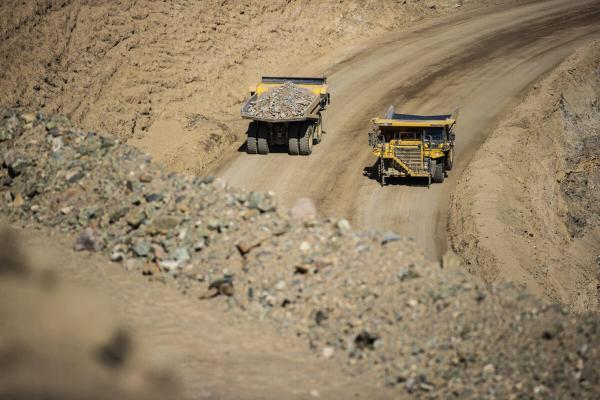
Join Distinguished Fellow Mike Gallagher and Congressman Rob Wittman (R-VA) for a discussion on the congressman’s recently introduced Securing Essential and Critical US Resources and Elements (SECURE Minerals) Act and Congress’s role in securing America’s economic security.
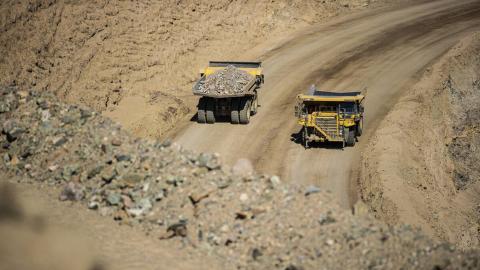
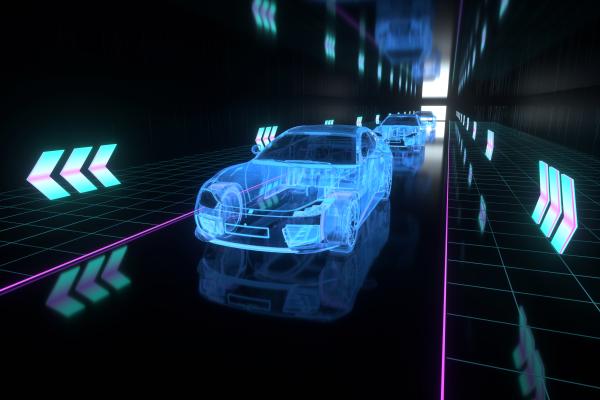
Join Hudson for an expert panel discussion on the latest policy developments and what an evidence-based approach means for the future of innovation.
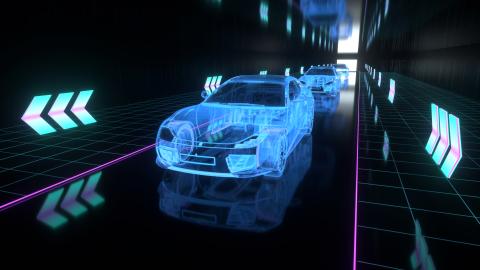
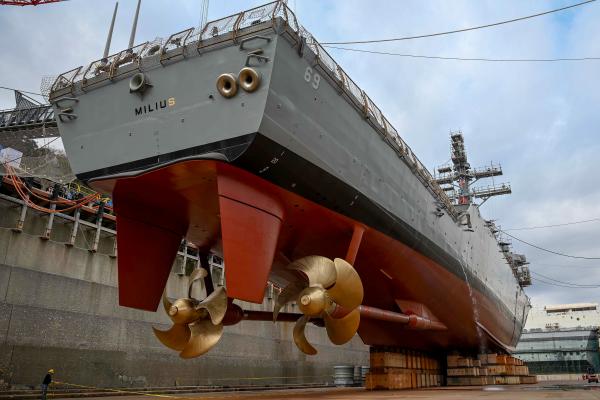
Join Hudson for a discussion highlighting each nation's approach to these common challenges, as well as how US-Japan collaboration should best proceed.
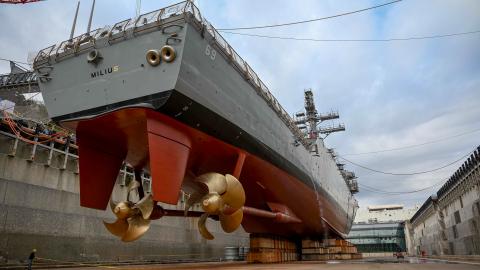

With Walter Russell Mead, Sankar will discuss his strategy to resurrect the American industrial base, win the twenty-first-century defense technology race, and prevent World War III.

